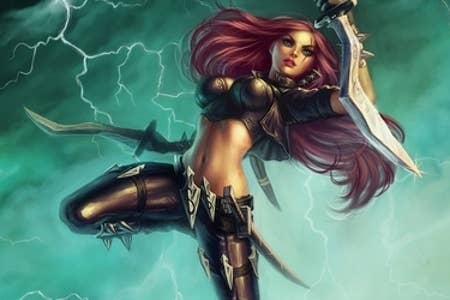Publisher 2.0: League of Legends' player focused marketing
"Players end up doing most of our marketing for us," says Chris Enock of Riot Games
This is the latest in Publisher 2.0 series on [a]list. The full interview can be read here.
League of Legends is one of the most popular games on PC these days, spearheading a new genre of games that are core-focused and free-to-play. Chris Enock, senior marketing director for League of Legends developer Riot Games, says that promoting the game is about direct messaging on the game's strengths rather than conventional marketing, and has little to do with talking about the economic model upon which it is based.
"Our team of marketers takes Riot's mission to heart: We try to be the most player focused company in the world," said Enock. "This means we focus on building our brands from a player perspective. Building our brand then becomes an exercise in deeply understanding what players want, aligning with development around providing it to them, then connecting the dots for players so that when they taste the improved experience they understand it wasn't accidental."
"The net impact is that our players end up doing most of our marketing for us - what you'd call earned media in your framework. Most League of Legends players join because they hear about the game from a friend. Friends feel comfortable telling friends about the game because they see Riot's regular improvements to the game experience. The medium for communicating our message - as in paid media or owned media - is in some ways an afterthought. We just want to have a meaningful dialogue with our players about the game."
"Nobody plays League of Legends just because it's free... They play it because it's a compelling game with a great roster of characters"
Chris Enock
"Nobody plays League of Legends just because it's free," added Enock. "There are plenty of games like that that don't really grab and hold players' attention. They play it because it's a compelling game with a great roster of characters. Being free just makes it easier for players to get into and stay in the game. So instead of the economic model, when we discuss the game, we focus on what draws players to the game. We try to grab the attention of players by showing the iconic and epic characters. As players engage, we try to convey the action-oriented nature of the game. As gamers explore deeper on the website or elsewhere, we discuss the strategic depth of the game."
When asked what advice he could give other digital developers that might have a limited marketing budget, Enock said, "The great thing about this new style of marketing is that it doesn't really cost anything compared to traditional marketing around paid media. Many of our conversations happen on our forums, Facebook, and other social channels. The reach and frequency of this marketing first scales with the strength of the play experience and value offered, and second with the number of players in the game. It's also a virtuous cycle. Companies that better engage their players around the positive aspects of their game enjoy more positive word of mouth and more referrals."
"As for jumpstarting the process and getting the word out about a game at launch, there are a number of marketing channels available today, like AdWords and Facebook, where the limiting factor is more often time and creativity vs. budget. Having a two-way conversation with players flips the tables. Now, the quality of the messaging is as important as the ability to broadcast it," Enock noted.
Check out the full interview on [a]list.









